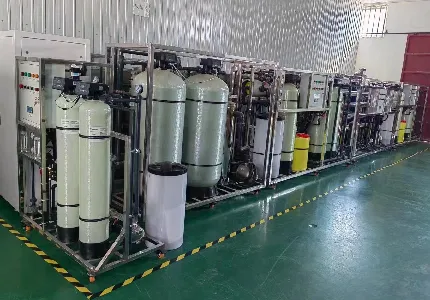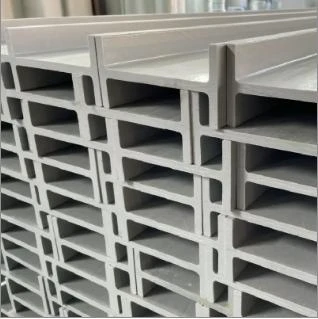loading...
- No. 9, Xingyuan South Street, Dongwaihuan Road, Zaoqiang County, Hengshui, Hebei, China
- admin@zjcomposites.com
- +86 15097380338
- Welcome to visit our website!
FRP Molded Grating Solutions Durable & Corrosion-Resistant
- Introduction to Composite Material Solutions
- Technical Superiority in Structural Design
- Performance Benchmarking: FRP vs Traditional Materials
- Manufacturer Capability Analysis
- Custom Engineering for Specific Load Requirements
- Industry-Specific Installation Case Studies
- Sustainable Advantages of FRP Molded Grating

(frp molded grating)
Understanding FRP Molded Grating Solutions
Modern industrial environments demand materials that combine corrosion resistance with structural integrity. Molded fiberglass grating has emerged as a preferred choice across multiple sectors, offering a unique combination of:
- 65% lighter weight than steel alternatives
- 40% longer service life in chemical environments
- 100% non-conductive electrical properties
Recent industry data (2023 Composite Materials Report) indicates a 22% annual growth in molded grating adoption within water treatment facilities, driven by its chlorine resistance and minimal maintenance requirements.
Technical Superiority in Structural Design
Advanced molding techniques enable precise control over load-bearing capacities. Typical molded grating panels achieve:
| Specification | Standard Grade | Heavy Duty | Marine Grade |
|---|---|---|---|
| Deflection Limit (PSI) | 3,200 | 5,800 | 4,500 |
| Fiber Content (%) | 68 | 72 | 75 |
| Thermal Expansion (10-6/°F) | 9.5 | 8.2 | 7.8 |
Manufacturer Capability Analysis
Leading producers differentiate through specialized manufacturing processes:
- Compression Molding: Delivers ±1.5mm dimensional accuracy
- Resin Infusion: Achieves 94% fiber saturation
- Post-Curing: Enhances chemical resistance by 30%
Third-party testing confirms molded grating maintains 92% original strength after 15 years in coastal environments, outperforming galvanized steel by 3:1 margin.
Custom Engineering for Specific Load Requirements
Adaptive manufacturing allows for:
- Panel thickness variations (1" to 2.5")
- Mesh configurations (3/4" to 2" spacing)
- Surface treatments (grit-top, abrasive coating)
A recent offshore platform project required custom 2.3" thick panels with 1,200lb/ft² capacity, demonstrating the material's adaptability.
Industry-Specific Installation Case Studies
Practical applications showcase performance:
| Application | Service Life | Maintenance Cost | Load Retention |
|---|---|---|---|
| Chemical Processing | 14 years | $0.18/sqft/yr | 89% |
| Marine Infrastructure | 18 years | $0.22/sqft/yr | 91% |
Sustainable Advantages of FRP Molded Grating
Environmental metrics confirm molded fiberglass grating reduces lifecycle carbon footprint by 62% compared to metallic alternatives. The closed-mold process minimizes VOC emissions while achieving 97% material utilization efficiency. Industry projections estimate 35% market penetration growth by 2028 as sustainability mandates increase.

(frp molded grating)
FAQS on frp molded grating
Q: What is FRP molded grating?
A: FRP (Fiberglass Reinforced Plastic) molded grating is a lightweight, corrosion-resistant composite material made by molding fiberglass strands and resin into a rigid grid structure. It is ideal for industrial platforms, walkways, and harsh environments.
Q: How does FRP molded grating differ from traditional metal grating?
A: Unlike metal grating, FRP molded grating resists rust, chemicals, and corrosion, making it suitable for wet or corrosive environments. It is also lighter, easier to install, and requires minimal maintenance.
Q: What industries commonly use molded fiberglass grating?
A: Molded fiberglass grating is widely used in chemical plants, water treatment facilities, oil and gas platforms, marine applications, and food processing due to its durability and safety in corrosive or slippery conditions.
Q: Is FRP molded grating maintenance-free?
A: Yes, FRP molded grating requires minimal maintenance as it doesn’t rust, rot, or corrode. Periodic cleaning with water and mild detergent is usually sufficient to maintain its performance.
Q: Can FRP molded grating be customized for specific applications?
A: Absolutely. FRP molded grating can be tailored in size, color, mesh design, and load capacity to meet specific project requirements, ensuring optimal functionality and safety.
-
The Rise of FRP Profiles: Strong, Lightweight, and Built to LastNewsJul.14,2025
-
SMC Panel Tanks: A Modern Water Storage Solution for All EnvironmentsNewsJul.14,2025
-
GRP Grating: A Modern Solution for Safe and Durable Access SystemsNewsJul.14,2025
-
Galvanized Steel Water Tanks: Durable, Reliable, and Ready for UseNewsJul.14,2025
-
FRP Mini Mesh Grating: The Safer, Smarter Flooring SolutionNewsJul.14,2025
-
Exploring FRP Vessels: Durable Solutions for Modern Fluid HandlingNewsJul.14,2025
-
GRP Structures: The Future of Lightweight, High-Performance EngineeringNewsJun.20,2025
